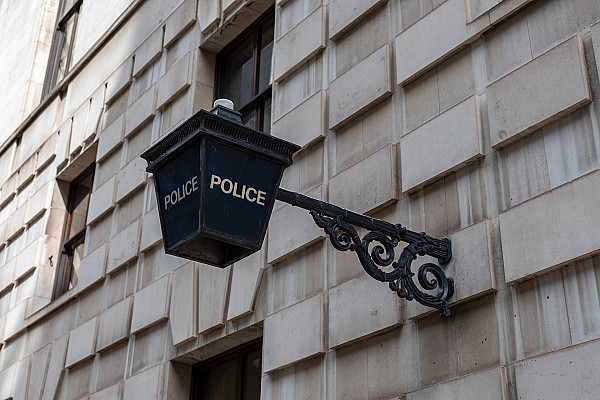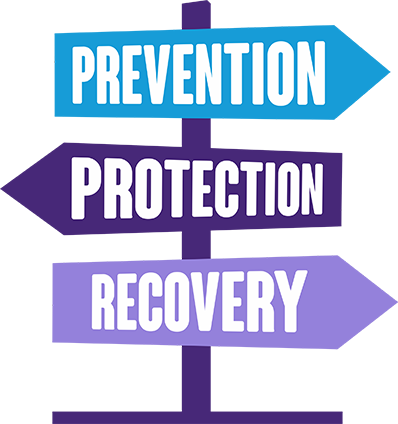Your rights and options

If you are experiencing domestic abuse, stalking or harassment it’s important to know your rights and options.
We have outlined some of the most common areas that victims of domestic abuse want to know about and we have provided information about some of the options available.
The Police and Criminal Law.
Reporting abuse to the Police
Domestic abuse, stalking and harassment is against the law.
If you have experienced any form of domestic abuse, you have the right to report it to the police. In case of an emergency, call 999 or 101 in a non-emergency situation. You can also visit a police station in person to report the incident. When reporting the abuse, it is important to provide the police with as much detail as possible and express any concerns you may have for your safety or the safety of others, including children.
It is advisable to make a note of the incident number as it may be required for future reference. If the abuser is arrested and charged, the police will decide whether to keep them in custody or release them on bail. If the abuser is released on bail, there will typically be conditions attached to the bail to protect you from further abuse, but it is always best to check.
The final decision on whether to prosecute the abuser rests with either the Crown Prosecution Service or the police, depending on the nature of the offence. If the abuser is prosecuted, you may be required to attend court. If you are concerned about attending court, the Citizen Advice Witness Service provides help and support. Remember, reporting abuse is an important step towards protecting yourself and others from further harm.
For further information about criminal law and domestic abuse. Follow the link to the Rights of Women website. They have produced an excellent guide which explains the process from trial to criminal proceedings.
The Domestic Violence Disclosure Scheme, also known as ‘Clare's Law’.
The scheme was named after Clare Wood, who was murdered by her ex-partner in 2009. Her family campaigned for greater protection for victims of domestic violence and the scheme was launched in 2014.
Under Clare's Law you can:
- apply for information about your current or ex-partner because you're worried they may have a history of abuse and are a risk to you
- request information about the current or ex-partner of a friend or relative because you're worried they might be at risk
The police will then carry out checks and disclose relevant information if it is deemed necessary to protect you/ the individual from harm.
For further information please follow the below link to the Lincolnshire Police website.
Domestic Violence Protection Order
If you have suffered from domestic abuse or received threats, the police can take action to protect you. They can issue a Domestic Violence Protection Notice and then apply to the magistrates' court for a Domestic Violence Protection Order.
A Domestic Violence Protection Order can offer you protection from further abuse. If you live with the perpetrator, the order can prohibit them from returning home or contacting you. If the perpetrator disobeys the order, they can be arrested and brought before the court.
The order lasts for a maximum of 28 days, which can give you some time to consider your options and obtain further support.
Restraining Order
A restraining order is a court order which prohibits the abuser from doing certain things such as contacting you or coming within a certain distance of your home. Restraining orders are made by the criminal courts.
If the police charge the abuser with an offence and the case goes to criminal court, the court may issue a restraining order to protect you. It's important to note that the criminal court can still issue the restraining order even if the abuser is found not guilty of the charges.
If the abuser breaches the restraining order, it is considered a criminal offence, and the police should take action to arrest the abuser if they believe there has been a breach.
It's important to note that you cannot apply to the criminal courts for a restraining order yourself. However, if you wish to make your own application for an injunction, you can apply to the civil court. A civil court can issue an injunction called a non-molestation order that is specific to your situation and may include provisions such as prohibiting the abuser from contacting you or coming near your home.
Non-Molestation order
A Non-Molestation Order obtained through the civil and family court can be a powerful legal tool to help protect you and your children from further domestic abuse or violence. The order places legal restrictions on the abuser to prevent or limit any further violent or abusive behaviour towards you. You can apply for the order on your own or with the help of a solicitor or another legal professional.
Some of the things that a Non-Molestation Order can do to help include:
- Prohibiting the abuser from contacting you or coming near your home or place of work.
- Prohibiting the abuser from using or threatening violence against you or your children.
- Prohibiting the abuser from damaging or threatening to damage your property.
- Prohibiting the abuser from harassing, intimidating, or pestering you.
If the abuser breaches the order, it is considered a criminal offence, and the police should arrest them. If found guilty, the abuser could face imprisonment for up to 5 years, depending on the nature of the breach. This can provide you with a greater sense of security and peace of mind, knowing that there are legal consequences for the abuser's actions.
In addition to providing legal protection, a Non-Molestation Order can also be a way to send a clear message to the abuser that their behaviour is not acceptable and will not be tolerated. It can also help to empower you to take steps to break free from the cycle of abuse and start rebuilding your life.
The court order application process is straightforward, and there is no court fee for the application. In emergency cases, orders can be quickly applied for.
If you are unable to afford legal costs, you may be eligible for legal aid. For further information click the link below
https://www.gov.uk/legal-aid/domestic-abuse-or-violence
Occupation order
An Occupation Order can be an important legal tool to help you if you are experiencing domestic abuse and need to protect yourself and your children. This type of order is designed to determine who can live in the family home.
- It can require the abuser to leave the family home, even if they own or rent the property.
- It can give you the right to stay in the family home, even if you do not own or rent the property.
- It can determine who has access to the family home, including any children.
- It can prohibit the abuser from entering or approaching the family home.
- It can be enforced by the police - If the abuser breaches the Occupation Order, it is considered a criminal offence, and the police can arrest them.
You can apply for the order on your own or with the help of a solicitor or another legal professional. An Occupation Order can give you the peace of mind you need to feel safe in your own home.
Two other types of protection orders that victims can benefit from:
A forced marriage protection order - to protect you from forced marriage or the risk of forced marriage
A female genital mutilation protection order - to protect you or a child against female genital mutilation
For further information about any of the civil protection orders, click on the links below.
https://www.ncdv.org.uk/are-you-suffering-domestic-abuse/how-the-law-can-protect-you
https://familycourts.idas.org.uk/protective-orders
Help with housing
There are several options available for domestic abuse victims who need help with housing. Here are some of the main options:
Refuges - Refuges are safe houses that provide temporary accommodation for those who are fleeing domestic abuse. They offer a safe, supportive environment where residents can access advocacy, emotional and practical support to help them rebuild their lives. Click here for further information.
Local authority housing - Local authorities can help if you are homeless or at risk of homelessness due to domestic abuse. This includes providing emergency accommodations like hotels, bed and breakfasts and refuge, as well as helping you find more permanent housing. You don't need to be sleeping on the streets to be considered homeless. Even if you have accommodation that you can legally occupy, the council should still consider you homeless if you can’t live there because of a risk of abuse.
In cases of domestic abuse, a person has the right to apply for housing to any local authority in the UK, regardless of whether they have a local connection or not. This is because the risk of violence and abuse means that it may not be safe for the person to stay in their local area.
Housing associations - Housing associations are organisations that provide affordable housing to people in need. Some housing associations have specific properties or programs that are designed for domestic abuse survivors.
Private renting - If you have the means to rent privately, you may be able to find a landlord who is willing to work with you to provide a safe and secure home.
Staying with family or friends - You may want to ask friends or family if you can stay with them temporarily if it is safe to do so. However, bear in mind that you might be more accessible to your abuser in these circumstances.
Occupation order - If you want to stay in your own home, you may want to consider an injunction to protect yourself and to keep the abuser away.
Follow the link below for information regarding housing options. https://www.nationaldahelpline.org.uk/help-with-housing
Finances
For information about the help and support available for survivors suffering financial hardship, click on the link below which will take you to the Women’s Aid survivors handbook.
https://www.womensaid.org.uk/information-support/the-survivors-handbook/i-need-ongoing-support/
Legal Aid
You might be able to get legal aid if you have evidence that you or your children have been victims of domestic abuse and you cannot afford to pay legal costs. For further information click the link below https://www.gov.uk/legal-aid/domestic-abuse-or-violence

